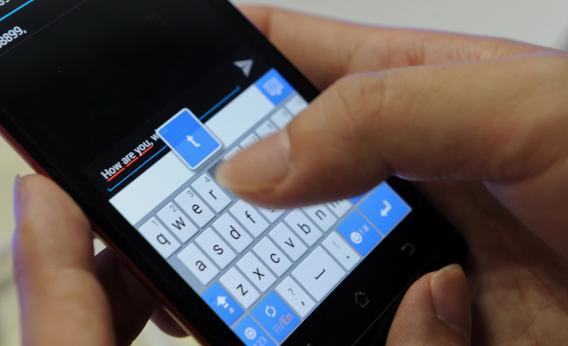Have you ever delved into new research purporting to uncover a new wrinkle of human sexuality, only to find that the results are actually describing the sexual habits of a couple of hundred intro to psych students at “a large public university in the Midwestern United States”? Since 1947, the Kinsey Institute at Indiana University Bloomington has been at the center of our understanding of how humans have sex, experience gender, and reproduce. But when its studies are undertaken at home, they end up surveying a not-so-representative sample of Americans in bed—77.3 percent of the school’s students are white; just .04 percent of them are over the age of 25.
Enter the Kinsey Reporter, a new mobile app equipped to collect sexual data from anyone around the world who chooses to download it into their pocket. Kinsey Reporter’s citizen sex researchers are asked to keep tabs on the sexual “events” in their lives—whether it’s a couple groping one another in public, or a user touching himself at home—then shoot the data into the cloud, where the incident is used to form a collective, real-time visualization of sex around the world.
That’s the theory, anyway. On Sept. 5—a year into development, and a month into the experiment’s public roll-out—Indiana University temporarily pulled the project, just as its crowdsourced sexual submissions spiked. Filippo Menczer, an IU informatics and computer science professor who helped develop the app, told the Associated Press that the application was “approved by a review board and vetted by technology and security advisers before it was launched in mid-August,” but is now back on hold until the university’s attorneys have more time to reassess the app’s privacy settings. Menczer added that the delay “should not be interpreted to mean that there was anything wrong with it.”
But even when the Kinsey Reporter is back online, there are a few things wrong with it. Its researchers are quick to clarify that its surveys are “not based on a random or representative sample of a community or population.” The application can only glean sexual insights from those who own smartphones and are willing to use them to take public (if anonymous) notes on the sexual events they’re having, or else watching. This limited sample size may not seem too critical when the Institute launches what it calls a “lighthearted” probe into sexual fetishes, but it poses a more serious problem when it endeavors to better understand “the prevalence of [sexual violence] around the world, especially in war zones.”
And though “privacy concerns” have derailed the app for now, they threaten to severely curb the app’s effectiveness in the future. The Kinsey Reporter is designed to be so anonymous that it collects no personal data about its users, meaning context is lean and quality control is difficult (the Reporter simply asks users “to act ethically, in the role of a good journalist”). The app is also incapable of linking different reports to the same user, so it’s impossible to know whether the citizens of Utah are experiencing a heightened rate of masturbation this month, or if there’s just one very prolific Kinsey Reporter in Salt Lake City who studiously logs on every time he jerks off.
Then again, the community of people who have downloaded the Kinsey Reporter app can’t be much more limited than a group of IU undergrads recruited to air their porn viewing habits for extra credit. (Early reports logged incidents ranging from #FemaleAggressor to #TeenPDA, originating everywhere from Bloomington to Cape Town). The app’s developers say they’re interested in “exploring new ways to record and describe people’s sexual experiences worldwide,” but they’re also “exploring new ways for people to be connected while protecting their privacy.” The Kinsey Reporter may not be capable of providing an accurate snapshot of sex around the world, but it could help foster a better understanding between the citizen sex reporter in Salt Lake and the one in South Africa—and encourage everyone to get more invested in serious sexual investigations. The app’s website includes a prominent link for users to support the Institute’s more traditional research methods, too.
